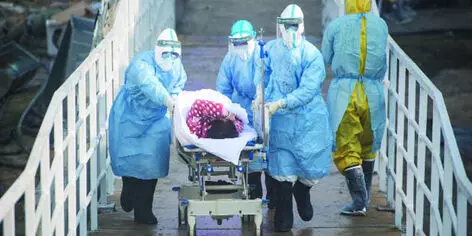
Covid: China's Zhejiang reports 1 mn cases per day; to double in days
text_fieldsRepresentational.
Beijing: The vast industrial province of China, Zhejiang, is reporting a million fresh Covid-19 cases every day, and the number is expected to double in the coming days, Reuters reported, citing the administration there.
Though the entire nation is reporting an immense load of fresh Covid cases every day, the Chinese Center for Disease Control (CCDC) and Prevention informed on Sunday that no deaths were reported in the Chinese mainland for five days till Saturday.
The reportage of nationwide positive case count stopped after the National Health Commission stopped counting asymptomatic infections. The commission also stopped reporting daily figures, and that was when CCDC published the same.
But Zhejiang is among certain provinces that report asymptomatic infections too after the recent case surges. The government here said in a statement that the infection rate would peak earlier here and it will enter an elevated level during the New Year, though numbers will reach up to 2 million.
In its new model, China has narrowed its definition of Covid deaths. It only counts Covid-induced pneumonia or respiratory failure, which ended up in death. This has, however, caused experts across the world to raise eyebrows.
Further, the World Health Organisation has not received any data from China on new Covid hospitalisations since the administration suddenly rolled back the Zero Covid Policy. However, the WHO reasoned that it must be because the Chinese administration is struggling to compile data and tally cases.
Meanwhile, a research note from Capital Economic said that China was entering the most dangerous weeks of pandemic rage. The administration was making no efforts to contain the virus spread or slow it while the migration ahead of the Lunar New Year started. If any part of the country stays out of a major pandemic wave, it will be hit by the same soon, the note said.
Further, the country's health care system is under immense strain after sick staff were forced to work, retired staff were rehired in rural communities and medicine supplies diminished.






















